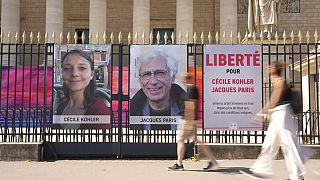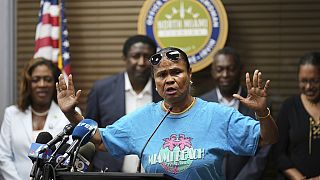USA
Everyone who moves through downtown Atlanta today passes places where innocent Black men and women were pulled from trolleys, shot in their workplaces, chased through the streets and beaten to death by a mob of 10,000 white men and boys.
But few have been taught about the 1906 Atlanta Race Massacre, which shaped the city's geography, economy, society and power structure in lasting ways.
Much like the Red Summer of 1919 in the South and Northeast and the Tulsa Race Massacre of 1921 in Oklahoma would years later, the white-on-Black violence in Atlanta shattered dreams of racial harmony and forced thousands from their homes.
A grassroots coalition is working to restore Atlanta's killings and their legacy to public memory.
Historic markers and tours are planned for this September's anniversary.
A one-act play will be performed simultaneously at group dinners across the city.
Organizers are seeking 500 hosts, with the ambitious goal of seating 5,000 people to discuss the lasting effects.
These activists say the massacre doesn't fit comfortably in Atlanta's "cradle of the civil rights movement" narrative, but they insist on truth-telling as some politicians push to ignore the nation's history of racial violence.
Mislabeled a riot, the killings of at least 25 Black people and the destruction of Black-owned businesses had a specific purpose: thwarting their economic success and voting power before African-Americans could claim equal status, said King Williams, a journalist who gives tours describing what happened.
"The mob began its work early in the evening, pulling negroes from street cars and beating them with clubs, bricks and stones," The Associated Press reported on Sept. 24, 1906, adding that "negroes were beaten, cut and stamped upon in an unreasoning, mad frenzy. If a negro ventured resistance or remonstrated, it meant practically sure death."
The violence began where Georgia State University's campus is now. Enraged by unsupported headlines about attacks on white women and the evils of "race-mixing," the mob set fire to saloons and pounced on Black men and women headed home from work, Williams explains on the tour.











02:08
Gunman attack in north-central Nigeria: death toll climbs to 150
01:19
Record number: nearly 1.3 million Haitians now internally displaced
01:38
OAS urged to do more to help Haiti fight gang violence
01:14
ICC makes progress in investigating alleged war crimes in Libya
Go to video
Global charity running event: 2025 edition of Wings for Life Run sees more than 300,000 participate
Go to video
South Africa's DA party goes to court over employment equity quota